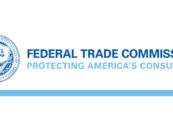The Better Business Bureau offers tips and advice for consumers to avoid fraudulent practices during the holiday season, more specifically holiday charity scams.
Today’s topic: Holiday giving to charities
RELATED: Tricky Holiday Scams to Avoid
The concern: With the holidays approaching, people tend to be more aware of the needs of others. Unfortunately, scammers take advantage of this time for “peace on earth, goodwill to men” and exploit consumers’ good intentions for their own benefit. Your Better Business Bureau reminds potential donors to be cautious this season before giving. “Let’s make sure our well-intended gifts and dollars go to the deserving and not to the fraudsters this holiday season,” says Kimberly Thompson, BBB director of external communications.
Tips for potential donors:
• Do your own research of the charity. Ask for detailed information about the charity, including name, address and telephone number. Get the exact name of the organization and search the name online, especially with the word “complaints” or “scam,” as one way to learn about its reputation. Search the National Association of State Charity Officials at www.nasconet.org to find out if the charity or fundraiser must be registered in your state.
• Call the organization. When a donation request comes from a group claiming to help your local community (for example, local police or firefighters), ask the local agency if they have heard of the group and are getting financial support.
• Ask questions. Before contributing, know who you are speaking with and for what cause. Is the caller a paid fundraiser? What is the name of the charity? What percentage of your donation will go to the charity and how much will go to the fundraiser?
• Whenever possible, donate directly to the charity. Fundraising telemarketers or direct mail solicitations are expenses for a charity and working through them raises the chances you could be working with scammers. Directly contributing helps ensure that most of your contribution will go to the charity.
• Don’t be pressured to give immediately. A charity that can use your money today will welcome it just as much tomorrow. Watch out for appeals that bring tears to your eyes but tell you nothing about how your donation will be used.
• Never send cash donations. For security and tax purposes, it’s best to pay by check, made payable to the charity, or by credit card. Do not provide your credit or debit card number, bank account number or any personal information until you’ve thoroughly researched the charity. Never wire money to someone claiming to be a charity. Scammers often request donations to be wired since wiring money is like sending cash: once you send it, you can’t get it back.
• Make sure the charity’s website is secure, before making online donations. Verify they have a privacy policy concerning the use of your name, email address or other personal facts. The web address for the page where donations are collected should begin with “https://”.
• Check out the charity. See if the charity is trustworthy by contacting the Better Business Bureau’s (BBB) Wise Giving Alliance (give.org), Charity Navigator (charitynavigator.org), Charity Watch (charitywatch.org), or GuideStar (guidestar.org).
• Keep a record of your donations.
For more information: For more about giving to charities, visit the Federal Trade Commission website at consumer.ftc.gov. To report a charity scam, visit BBB Scam Tracker at bbb.org/scamtracker.
Visit bbb.org/canton to look up a business, file a complaint, write a customer review, report a scam with Scam Tracker, read tips, follow us on social media, and more.
Are you a victim of fraud or money scam? Share your story with us on the Money Credit and You Facebook page!
Original article published on CantonRep.com.






